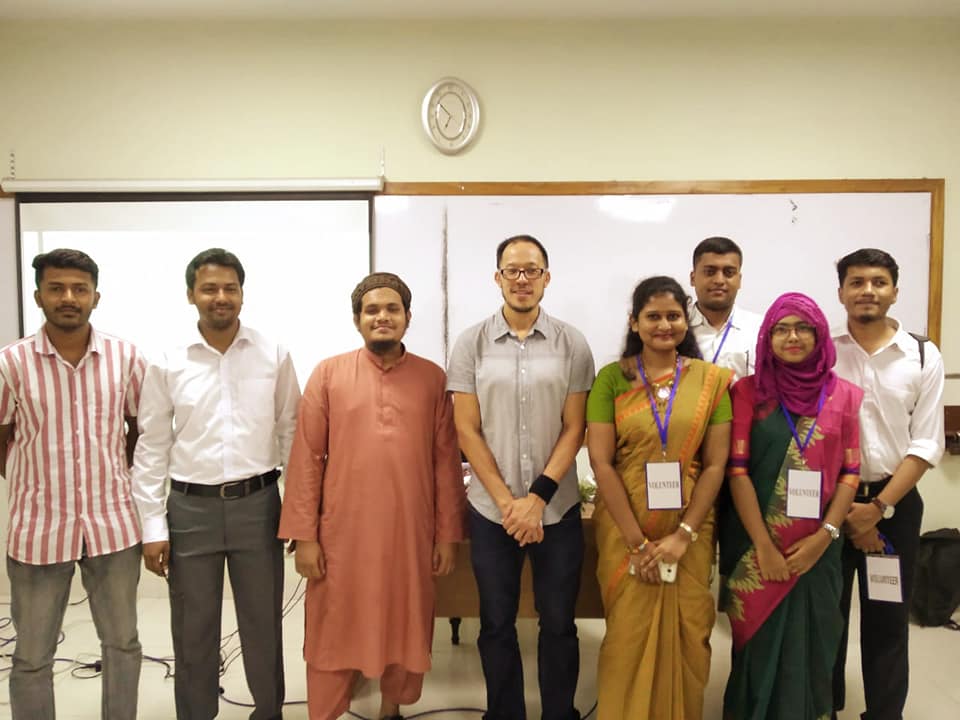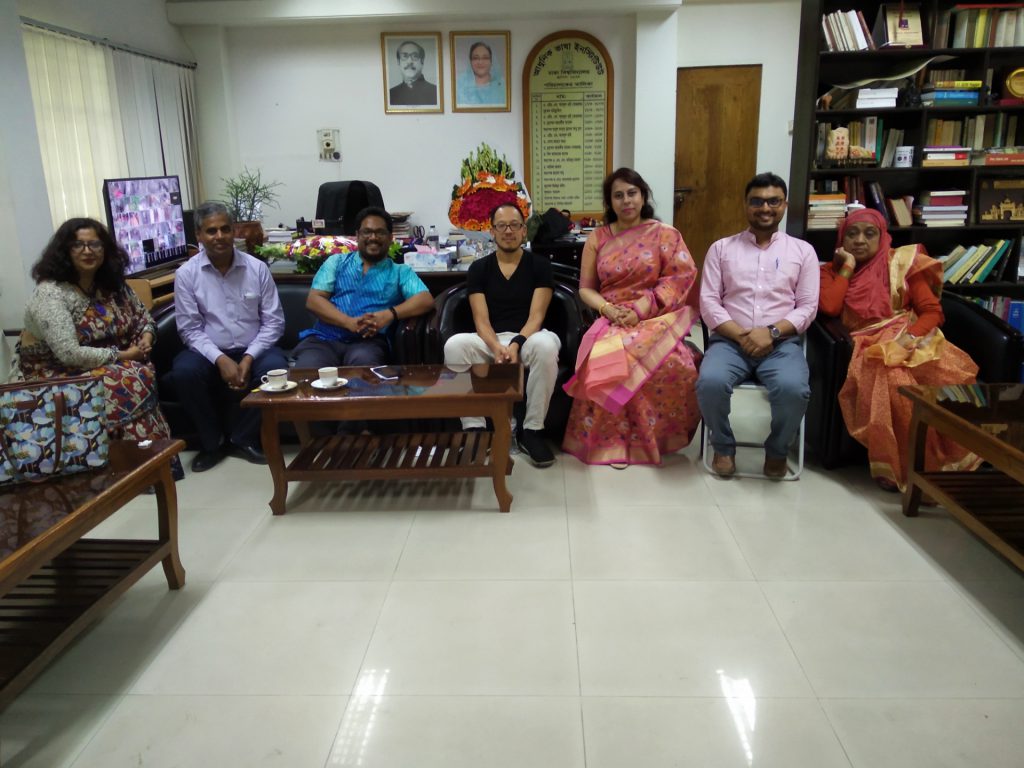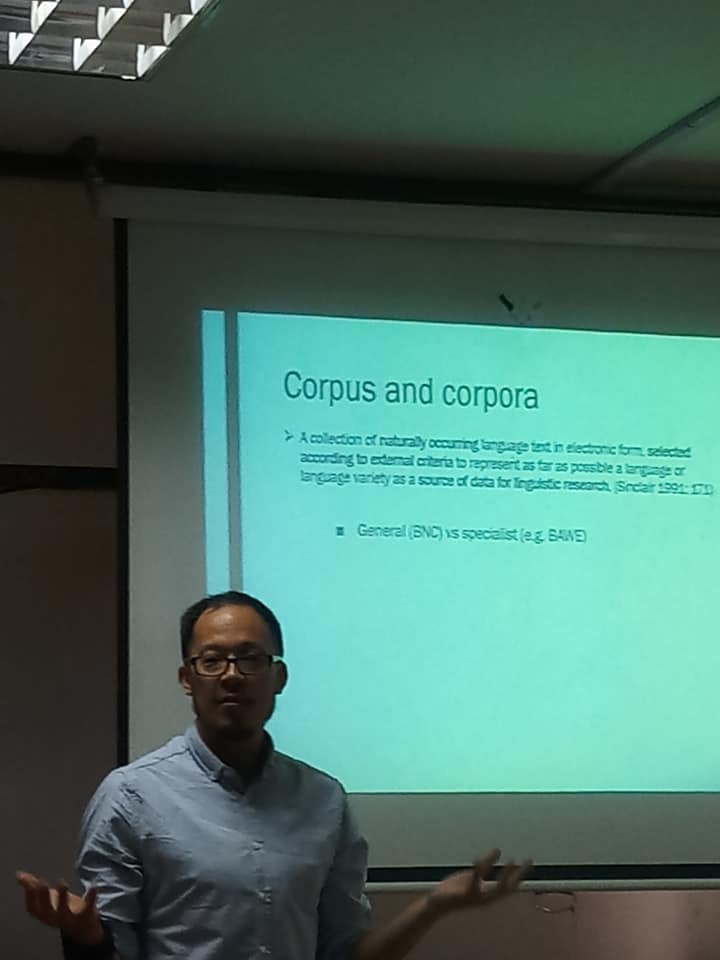Language Matters!
Dr Chris Tang applies his work on Sylheti-Bengali diglossia in low literacy contexts in Bangladesh, as he establishes relationships with gatekeepers at the University of Dhaka and University of Liberal Arts Bangladesh
In July, ECS’ Dr Chris Tang presented at the University of Dhaka and to members of the largest association of language teachers in Bangladesh at the University of Liberal Arts. Tang, a Lecturer in International Education and Applied Linguistics, gave two talks about the role of language in promoting health literacy in multilingual, low literacy contexts. Engaging with these key stakeholders in Bangladesh enabled Tang to help protect low literacy communities there by applying his work on how different communities conceptualise and make sense of risk communication and warning information.
Tang’s PhD focused on the role of language and health literacy in communicating about the risks of extreme temperature to Bangladeshi and white British populations in London. These findings conceptualise health literacy as a set of cognitive and social competences, which are inextricably tied to the language chosen to frame the message and the linguistic devices that have been employed. For instance, the older Bangladeshi participants in the study had low levels of literacy and were primarily reliant on Sylheti, an oral language, to access information about the weather and health. They had very different ways of conceptualising and making sense of warning information to that of the white British population (Tang and Rundblad 2015). Tang presented these findings at both Dhaka talks, which were well attended, with approximately 60-80 attendees. Furthermore, the audience was a diverse set of trainee language teachers, practising language teachers, and faculty members involved in language education and applied linguistics. They discussed the applicability of Tang’s findings for the local context.

Dr. Tang (centre) with some corpus workshop participants 
Dr. Tang and IML faculty members
The findings in Tang’s research have implications for the design and dissemination of advice in multilingual societies that include low-literacy, “hard to reach” groups, such as those found in Bangladesh. Tang engaged with policy makers and practitioners involved in disaster and health communication in the country. He also shared methodological practices with students and researchers in applied linguistics. A major international health NGO proceeded to invite Tang to present his research in Dhaka in 2020. Tang’s goal is to continue consolidating and expanding his connections with the relevant researchers and practitioners he met on the Dhaka visit.

Another aim of the visit was to engage postgraduate and professional researchers with some of the research methodologies that Tang used on the project. Corpus linguistics involves establishing language patterns across a large collection of digital texts using specialist software. It is an approach to discourse analysis that Tang has found useful in exploring the language used to communicate risk (Tang and Rundblad 2017). As this is not currently an established technique within applied linguistics in Bangladesh, particularly in the area of health and risk communication, Tang gave two workshops guiding students and faculty members in the use of corpus software. As a result, applied linguists and members of the department of disaster science and management at the University of Dhaka reached out to Tang to discuss collaborations in improving the way Bangladeshi government and health agencies communicate about risk to their population.
